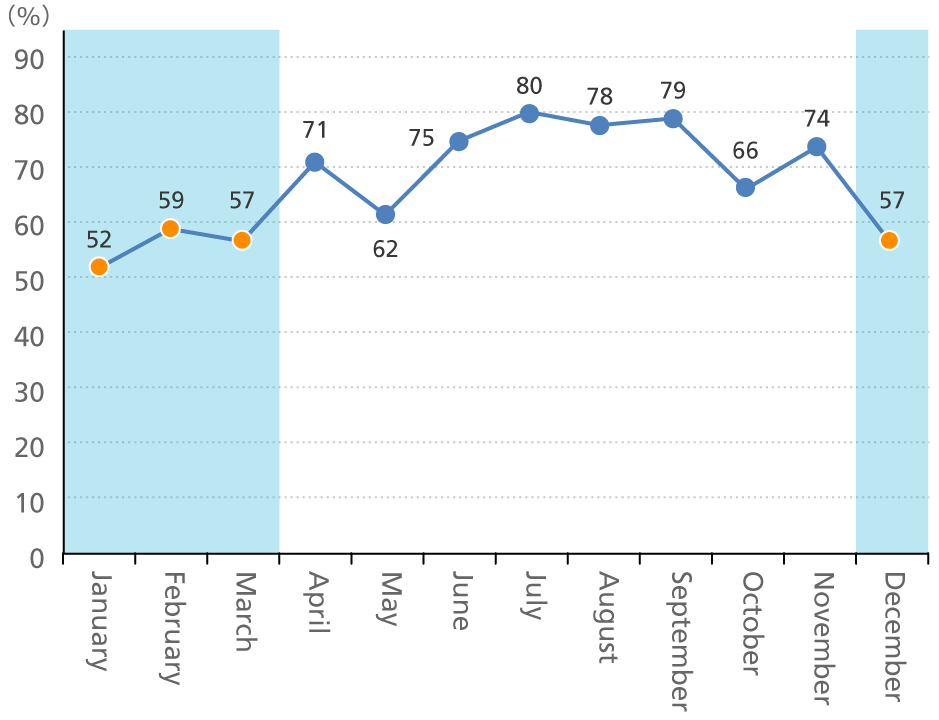
Solution
Problem
Dry air in the room
Air conditioner is the most popular heating appliance during winter.
In a survey for air conditioner users "Do you have any problems with the indoor environment in winter?“, the No. 1 answer was "Dry skin, throat, eyes, and hair (56%)".
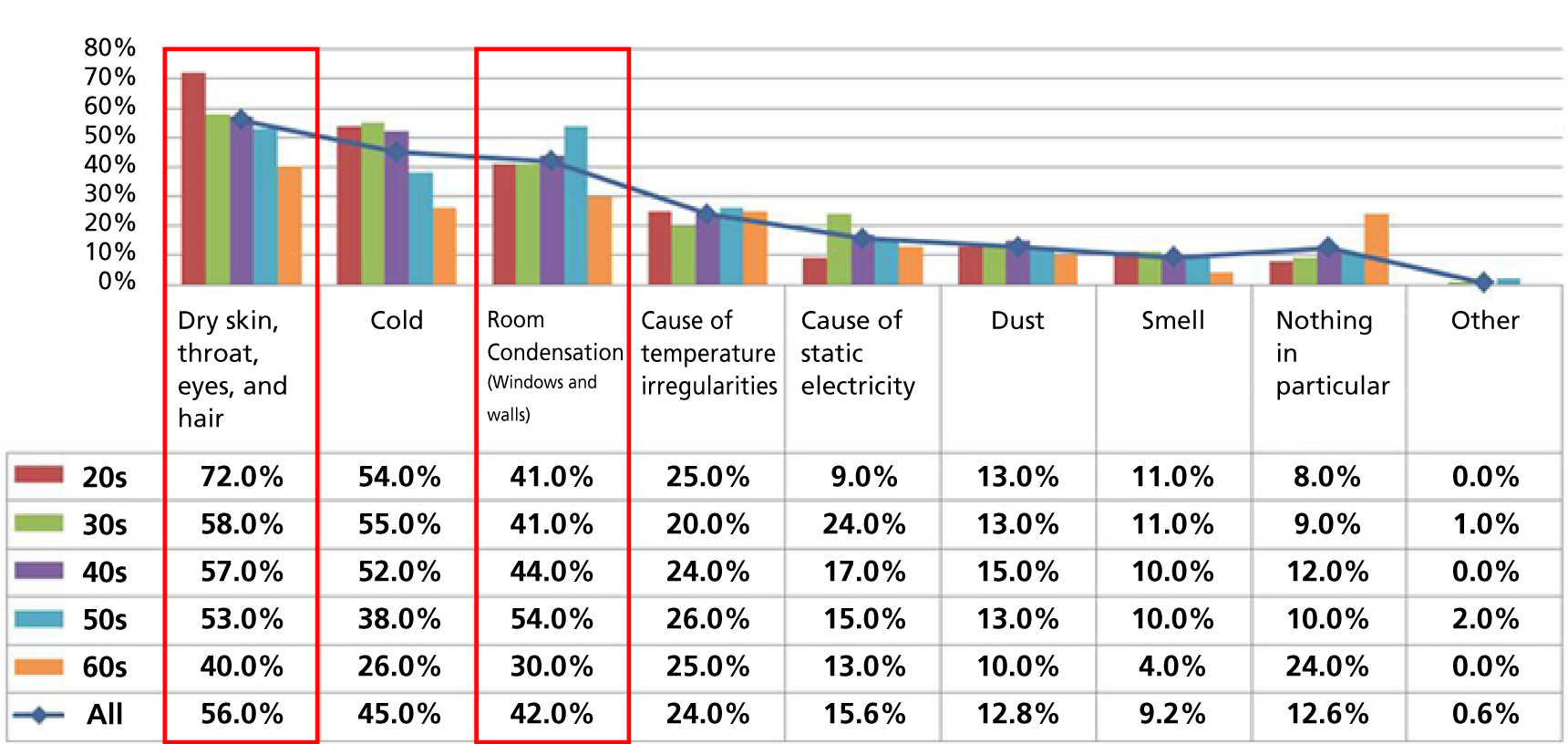
[Reference] Announced on January 23 "Survey on Awareness and Actual Conditions of Humidity" Neo Marketing Co., Ltd./500 people (Nationwide, male and female, 20 to 69 years old)
Humidity decreases when it is heated
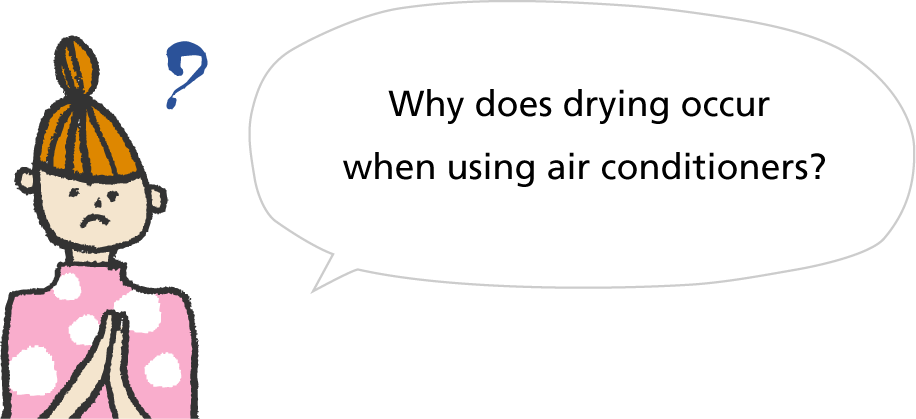
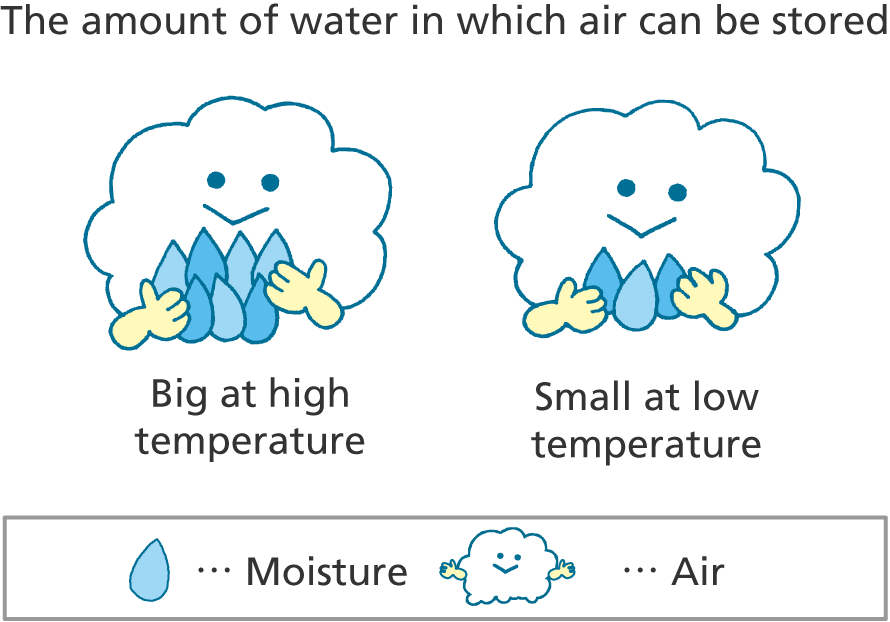
Air conditioning does not "dry" because it reduces the amount of water in the air. It occurs because the humidity (relative humidity) decreases as the room temperature increases. The amount of water that air can contain (saturated water vapour content) depends on the temperature of the air: the higher the temperature, the more water it can contain.
Air conditioner heating without humidifying function raises the temperature of the whole room by directly heating the air, so it does not generate steam. In other words, the moisture in the air does not increase, but only the temperature rises, which lowers the humidity (relative humidity) and causes drying. Also, if the warm air from the air conditioner directly hits your body, it may cause your skin, lips and hair to become dry. "Drying" is the most common winter problem. We can see that this is largely due to the "Dehumidifying" effect.
What is Relative Humidity?
According to the Japan Meteorological Agency, the average humidity in Tokyo in January was 52%. Why does it feel dry when it looks like an ideal number?
As an example, consider air to be "a room with a fixed number of seats".
In this example, 15ºC can seat up to 4 people. If 2 seats are occupied, the relative humidity is the "Percentage of total" of how many seats are occupied, so in this case the relative humidity is 50%.
As the temperature increases, there are "more seats increase" and the humidity decreases. However, as the temperature decreases, there are "fewer seats" and the humidity increases.
It is easy to understand when you consider the difference in humidity between summer and winter, but if you lower the temperature, the amount of moisture that can exist in the air will be greatly reduced.
Even if the outdoor air humidity is 50% in winter, it feels dry because the amount of moisture in the air is small.
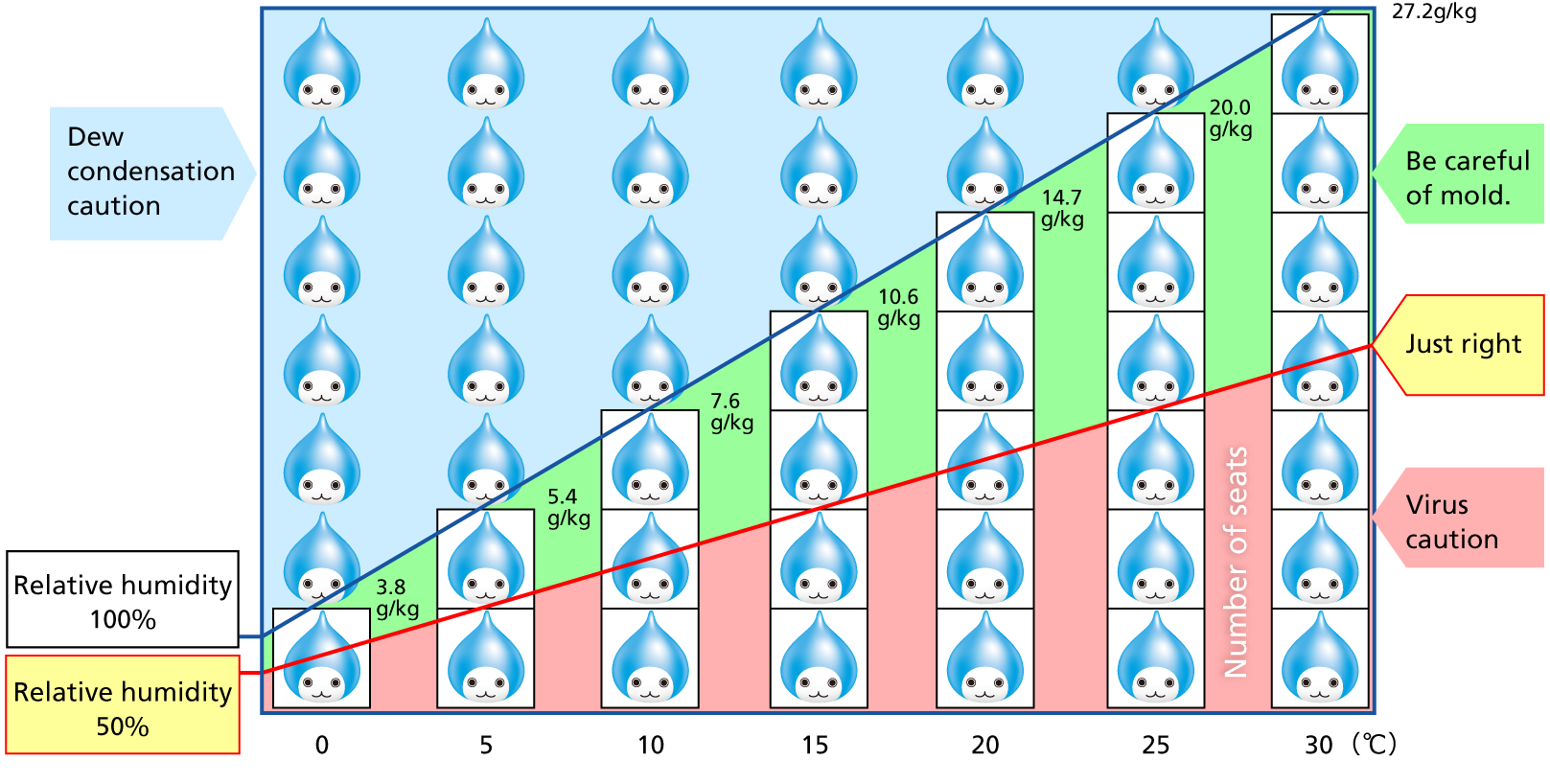
Solution
Humidify during heating
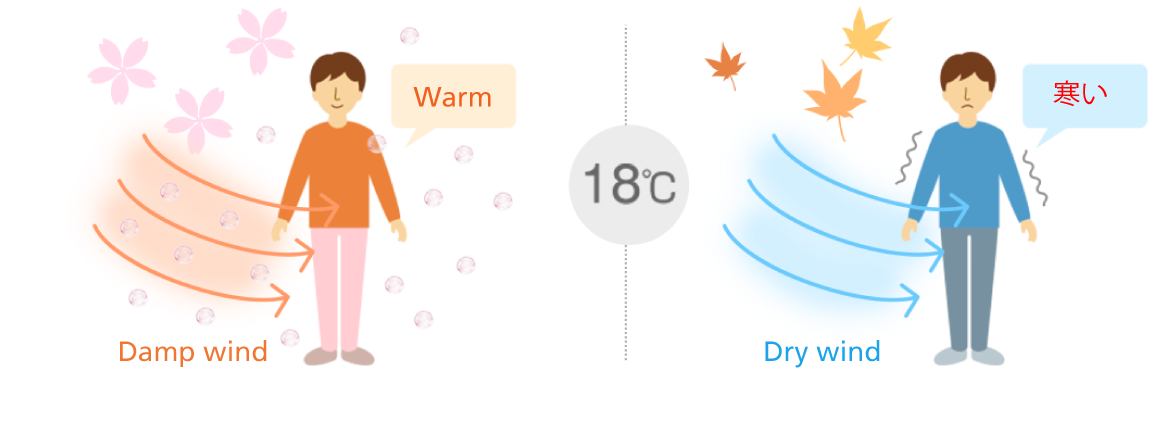
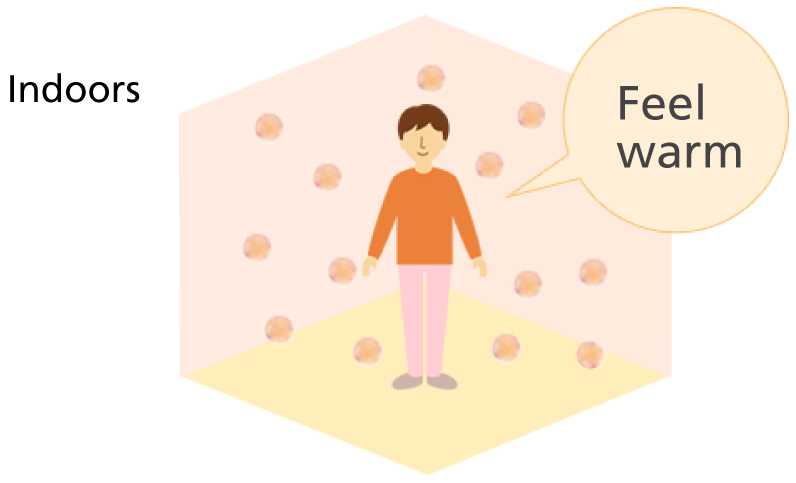
Comfortable temperature and humidity control
When you compare spring and autumn, the temperature doesn't change much, but spring feels warmer and autumn feels cooler. In Japan, humidity is high from spring to summer and low from autumn to winter due to seasonal winds, and the air tends to dry. Even if the temperature is the same, it feels warm when the humidity is high, so the sensible temperature tends to rise more in spring than in autumn.
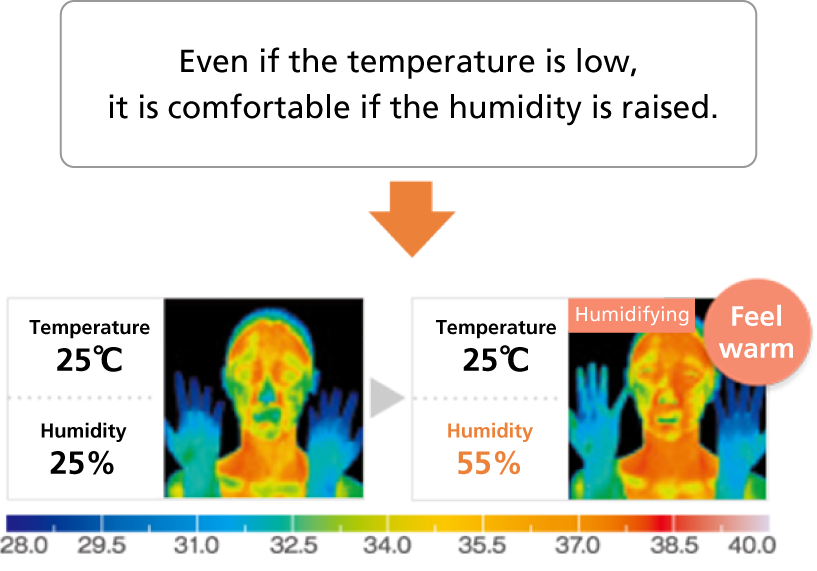
Even if the temperature is low, it is comfortable if the humidity is raised.
Heating while humidifying feels warmer, so it's more comfortable at a lower set temperature than heating without humidification.
Humidification also reduces moisture-sensitive viruses
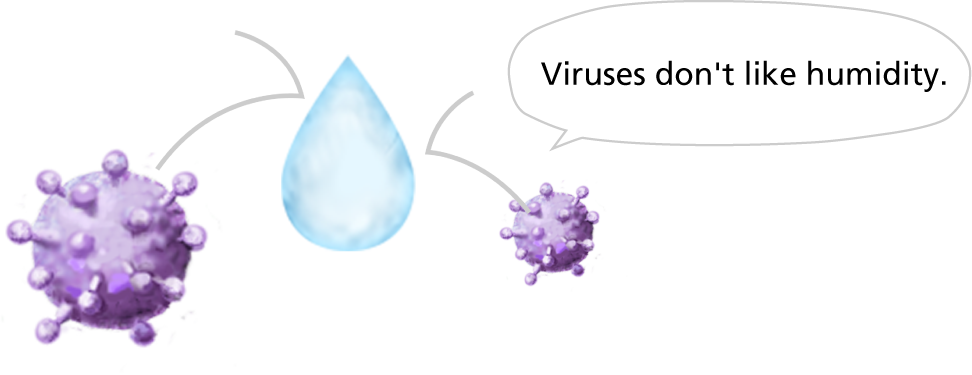
Generally, it is said that the virus death rate increases when the humidity is over 40%.
Keep a room moist
Humidity control is important to prevent dryness caused by air conditioner heating.
By keeping comfortable humidity in the room, you can prevent dryness of the throat and skin.
Humidity control!
- Hang laundry indoors
- Install humidifiers and air purifiers with humidification functions
- Use a humidified air conditioner
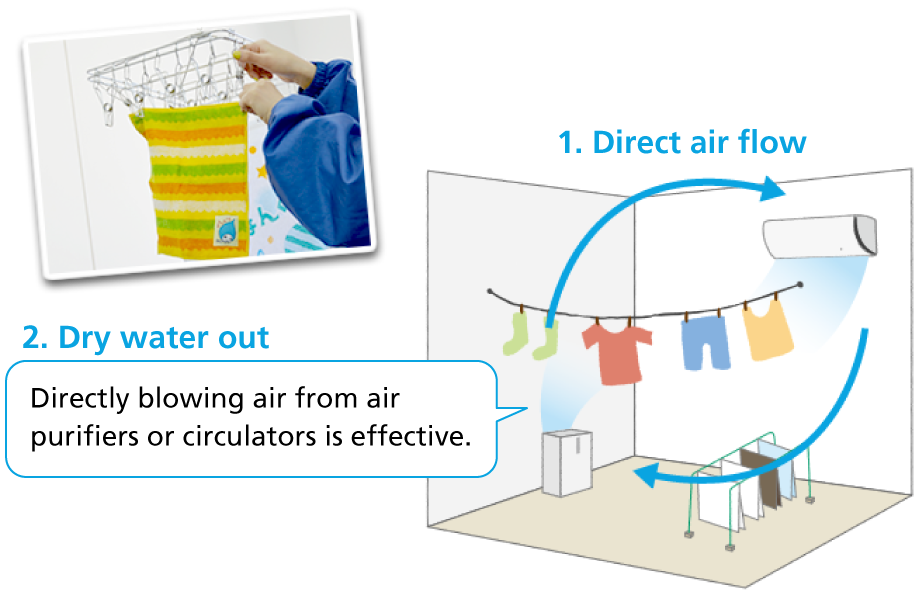
References
Annual humidity changes and the driest period
In October, the relative humidity will drop by more than 10%.
The driest air in a year is from December to February. Relative humidity drops to around 50% (The national average of annual relative humidity is 70%.). If the relative humidity is 50% even in winter, it looks like the ideal humidity is maintained, but this is the outdoor humidity. In winter, the temperature difference between outdoor and indoor is large because of heating, and the higher the temperature, the lower the humidity. Therefore, the humidity inside the room during winter becomes much lower than the figure on the graph, and it dries.

